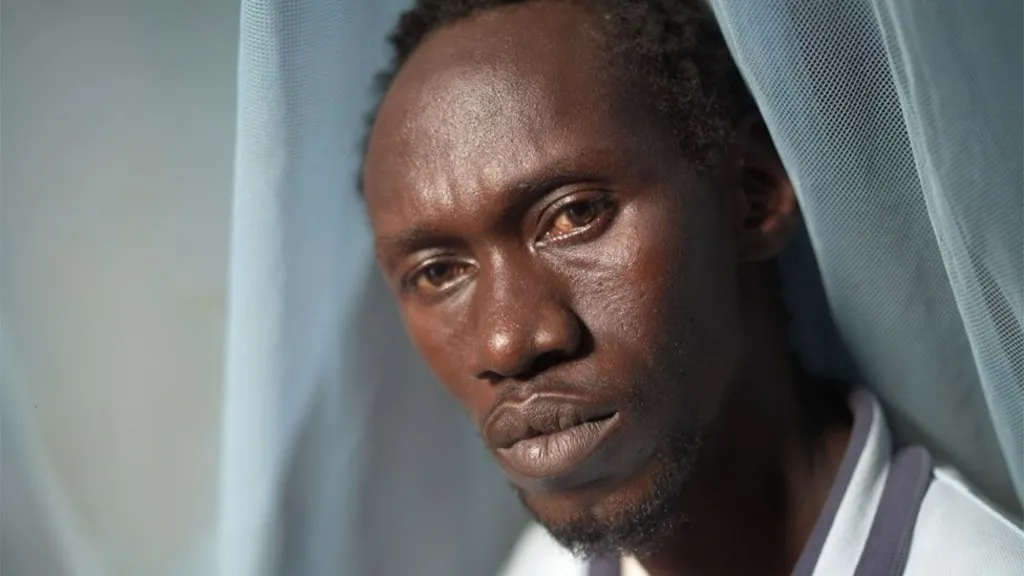
Senegalese farmer Mouhamed Oualy stands on the brink of a perilous adventure—one that could lead him across the treacherous Atlantic Ocean in search of a better life. Despite never having set foot on a boat, he is preparing to embark on a journey that has turned the ocean into a grave for many.
“The boat guys have called me—it’s time to get ready. Please pray for me,” he says, his voice heavy with the weight of uncertainty.
In an exclusive look at the world of migrants attempting to reach Europe via the Canary Islands, BBC Africa Eye captures Oualy’s determination amid rising numbers of those making the dangerous crossing. The regional government has warned that the existing systems in the archipelago are “overwhelmed” and “at breaking point,” but Oualy remains undeterred.
Packed onto an overcrowded pirogue—a traditional wooden fishing canoe—he faces a journey that could take days, even weeks, battling one of the most unforgiving seas in the world. The distance from Senegal to the Canary Islands ranges from 1,000 to 2,000 kilometers (600 to 1,200 miles), approximately ten times longer than other migrant routes across the Mediterranean.
The journey is fraught with peril. Migrants often run out of water and endure severe seasickness, anxiety, and the overwhelming darkness of the ocean at night. Oualy, who has not seen his children in almost a year, has taken on the additional role of a motorbike taxi driver to save money for the $1,000 fee to board a vessel. His hopes are pinned on reaching the archipelago and providing for his family.
“Nobody knows what could happen to me at sea. The evil spirits could take me,” he reflects somberly. “The boat could capsize, and if you fall overboard, there’s nothing to hold onto. Death is the only certainty, but I must take the risk.”
Many boats have vanished, taking hundreds of lives with them. Without proper navigation, some end up drifting far off course, only to wash ashore in Brazil. If Oualy survives, he hopes to make a living to support his extended family. Still, he keeps his plans secret to spare them from worry. Despite Senegal’s economic growth over the past decade, over a third of its population lives in poverty, according to the World Bank.
“I’ve tried every job imaginable, but nothing improves. If you lack money, you are worthless. I am their only hope, and I have nothing,” he laments.

Most migrants like Oualy are fleeing poverty and conflict, exacerbated by climate change. The Canary Islands have become a key entry point for irregular migrants hoping to reach Europe, especially as other routes have been restricted. In 2023, nearly 40,000 migrants arrived—an unprecedented number in three decades.
The Canary Islands government, bracing for even more arrivals, describes an emergency system “oversaturated” with responders struggling to cope. “The more people that arrive, the more lives will be lost; we can’t assist them as they deserve,” warns Fernando Clavijo, the president of the Canary Islands government.
Emergency workers are exhausted, with reports of severe emotional tolls from witnessing ongoing tragedies. On El Hierro, the smallest island, migrant arrivals have already surpassed the local population, causing tension and concern among residents.
As Oualy awaits his departure, he is summoned by smugglers to a hidden location. He finds himself packed in a house with others also hoping to make the journey. “We fill the house; there are people from Mali and Guinea too. They take us in small boats until we reach the larger vessel,” he explains.
Preparing for the long journey, he only brings a few bottles of water and some biscuits. The first days are unbearable as he struggles to find space on the crowded boat. With limited supplies, he faces severe dehydration and panic among the other passengers.
According to the UN migration body, the Atlantic route is becoming the deadliest journey for migrants globally, with at least 807 reported deaths in 2024 alone. Tragically, many of these incidents go unrecorded, making the true toll even higher.
Despite the dangers, Oualy’s determination remains resolute. “Every 45 minutes, someone dies trying to reach our shores,” Clavijo emphasizes, highlighting the growing power of trafficking networks profiting from human desperation.
After five days without contact, Oualy finally reaches out. “The motor overheated, and the winds were strong. We almost turned back, but the captain insisted we press on,” he recalls. However, the ship’s engine eventually fails, forcing them to abandon their mission and return to Senegal.
Injured and in constant pain, Oualy is back to square one, yet his resolve remains unbroken. “I wish to try again. If I die, it’s God’s choice,” he states, resigned but determined.
If he makes it to Europe, he may not see his family for years; if he perishes at sea, he will be lost to them forever. The Atlantic looms large, a reminder of the risks that countless others have taken in search of hope.





